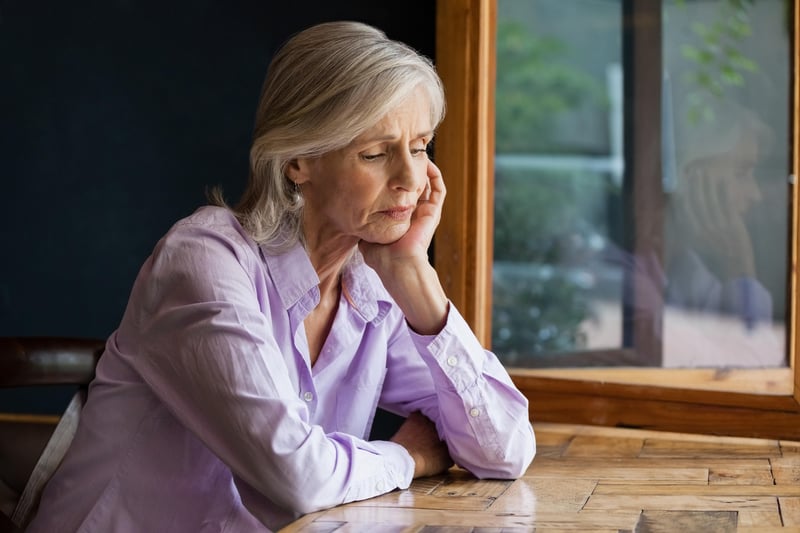Get Healthy!

- Posted September 14, 2023
Digestive Diseases Can Take Toll on Seniors' Mental Health
A lot of older adults have digestive diseases that can be debilitating. They can also be linked to loneliness and depression, a new study says.
"These conditions are very common in ambulatory care,"said gastroenterologist Dr. Shirley Cohen-Mekelburg, who specializes in problems like inflammatory bowel disease, Crohn's disease and ulcerative colitis at University of Michigan Medicine.
While there has been a greater emphasis on figuring out why so many Americans are developing digestive diseases, current approaches often fail to consider the impact of psychosocial factors, Cohen-Mekelburg said.
"As physicians, it's important for us to pay attention to psychosocial factors involved in the lives of our patients, but they often go overlooked,"she said in a Michigan Medicine news release. "These factors have the potential to significantly impact gastrointestinal health, and they also play a crucial role in the overall well-being of our patients."
A team of gastroenterologists and hepatologists (specialists in the liver, gallbladder and pancreas) examined rates of loneliness, depression and social isolation in older adults both with and without digestive diseases and "wanted to quantify these numbers with self-reported rates of poor health,"Cohen-Mekelburg said.
They used data from 2008 to 2016 from the University of Michigan Health and Retirement Study, which has a representative sample of about 20,000 people ages 50 and up and their spouses.
Cohen-Mekelburg noted that loneliness is subjective -- distressed feelings from being alone. Social isolation is objective -- physical separation from other people but independent of psychological well-being.
"Therefore, there are people who live in isolation but are well-adapted, not lonely and report high psychological well-being. But on the other hand, there are also people who are socially connected, yet suffer from low psychological well-being and loneliness. This, despite having a strong social network,"Cohen-Mekelburg said.
From a group of more than 7,000 participants, the team identified 56% of individuals with a digestive disease and 44% without one.
Overall, about 60% and 56% of respondents with and without digestive diseases, respectively, reported loneliness. About 13% and 8% reported severe depression. Finally, roughly 9% in both groups reported social isolation.
"We found that individuals with a digestive disease were more likely to report 'poor-or-fair' health when compared to those without one. And among patients with a digestive disease, loneliness, as well as moderate to severe depression, were associated with greater odds of self-reporting 'poor-or-fair' health,"Cohen-Mekelburg said.
She hopes the findings eventually empower gastroenterologists to screen patients for depression and loneliness, in addition to their physical symptoms.
"By doing this, providers can better establish care pathways for mental health treatment for their patients, which is hugely important,"Cohen-Mekelburg said. "Our research shows that gastroenterologists are in a unique position to help their patients achieve good overall health. Being aware of the link between loneliness, depressive symptoms and digestive diseases can really benefit your patients from a holistic perspective."
The findings were recently published in Clinical Gastroenterology and Hepatology.
More information
The U.S. Centers for Disease Control and Prevention has more on links between social isolation, loneliness and health issues.
SOURCE: Michigan Medicine - University of Michigan, news release, Sept. 12, 2023







